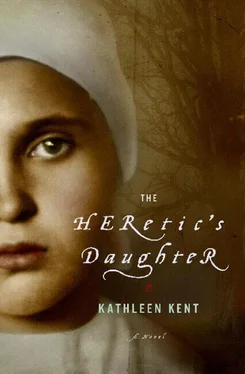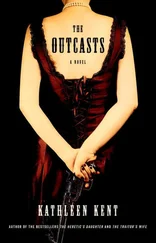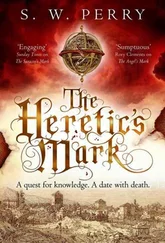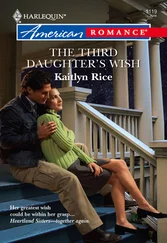“You’re the liar,” Mercy screamed, her white skin turning blotchy and liverish. “You and your useless son. He promised to marry me and I gave him a roll to bind the deal, but your son and his puny wick couldn’t find his way into a woman even when it was thrust in his face. If you turn me out without a promise of marriage, I swear I’ll tell the whole village your family is filled with whoresons.” The rising sound of her voice was cut short by Mother slapping her hard across the face. A thin sliver of spit ran down the corner of her mouth while she cradled the reddening cheek with her hand.
“I turned a blind eye while you made moon eyes at Richard and shamelessly chased him about the place. But had I known you were putting yourself out with him under our roof, I would have dragged the rest of your hair out by its roots. At least Richard had enough sense to keep his rod in his pants with a girl so homely and rummy that even the Indians wouldn’t have her.”
I have never since seen the enormity of hate on a woman as that which filled the face of Mercy Williams in that moment. She looked at the both of us, and I was soon clinging to Hannah for comfort. She gathered her few things and walked out the front door, and it was days before we heard that she had been taken in by the Chandlers. They lived close by, across Boston Way Road, and had a travelers inn and were happy to buy from Father the remainder of her indenture. What story she must have told them I do not know, but Father was honest with William Chandler and said that Mercy had been a good worker. After Mother spoke to Father that evening, he beckoned ominously to Richard and they were out in the barn together a good while. When Richard came back into the house, he could barely walk from the welts the strap had left on his legs, but he seemed much lighter in spirit.
Lying in bed alone that night, I hummed the French trapper’s song but soon gave it up as I had already begun to forget the words. I held Margaret’s poppet close to my lips, but, not feeling the needle within, I lifted the skirt and found it to be gone. I sincerely hoped that it would soon break in Mercy’s thieving fingers, giving her lockjaw and a slow, painful death. Sometime during the night, Hannah crawled into my bed, and, as I pulled her round little body to me, I whispered, “Mercy is gone now. And as you are two years old, and a big grown girl, you shall sleep with me in my bed from now on.” I could smell the rosemary still clinging to my fingers and was grateful for its fragrance covering over Mercy’s musky odor, which had sweated into the sheets: an odor of hidden thoughts and furtive womanly desires. I fell asleep thinking of swift-burning fires and forested paths that traveled nowhere but north.
CHAPTER FOUR
September 1691–December 1691
OFTEN DURING THOSE first days of September I would hide myself away in the cool and rustling stalks of corn growing in the house garden. The beans and squash had begun to ripen and I took time filling my apron, knowing that other less pleasant tasks waited for me in the torpid heat of the house and barn. We had nearly eighty bushels of corn from the harvesting of the outer field, and there was hardly a meal that didn’t have the hard little kernels ground or mashed or soaked into the game Father had shot. We had them as roasting ears pulled from the embers, as hominy soaked to mash in wood-ash lye and baked with beans and squash. Later, in the new year, when the sap rose in the maples, we would have cornmeal mixed with syrup and flour to make Indian pudding. It would take a goodly amount of the syrup to disguise the gritty taste of corn that had been stored in bushel baskets for many months.
I moved deeper into the shade and came upon the scarecrow, his head and shoulders peeking above the corn’s silken tassels waving in the wind like citizens hailing their protecting king. He was in fact a lengthy baking paddle with a hickory branch lashed to the pole to make two arms. We clothed him with a pair of Father’s aging breeches and coat, so ancient they had been worn on the crossing from old England. The jacket was a faded red woolen with turned-back cuffs of blue and a mended tear across the sleeve. Weeks before, I had come upon Father staring at the stick man as though at one long thought dead. The day had entered the long-shadow time that Father loved best, and, as he was at his ease, I braved asking him what he was thinking. Unmoving, he had answered, “I am remembering what I would forget. But a man’s past is like his own shadow.” After a time he felt my wondering gaze on him and nodded. “Go on, Sarah, ask your question.”
“Is it a soldier’s coat?” I asked.
“Aye,” he answered quietly.
“Where did you fight that you received such a tear in it?” I asked, moving closer.
“Ireland.” His answer surprised me, for I had thought him only a soldier in old England. “I went with Cromwell to fight Catholics.”
I had heard enough in the meetinghouse to know that Catholics were idolaters and blood drinkers and were as evil as Lucifer himself. With a growing excitement I asked, “And did an Irish soldier give you that wound?” I pointed to his arm where I had seen the raised, puckered scar running like a snake from his elbow to wrist.
He shook his head, saying, “No. He was only a man defending his hearth and family.”
Disappointed at the homeliness of his answer, I frowned and considered what else to ask him. When I raised my head to speak, he had already turned away, moving into the corn. The green stalks swished and crackled as they first parted, and then came together again behind his retreating form.
Strings of rattling shells hanging from the scarecrow’s arms moved with the breeze and brought me back to the moment. Mother called the scarecrow a murmet, which had a more secretive sound. A scarecrow was a thing of bold-faced tactics, out in the full light of day. A “murmet,” the “r” softly rolling against the tongue, spoke of murmuring stealth, as though it hunted marauding crows in the darkening twilight. It was the name that people who came from the south of England used. Places such as Devon, Basing, and Ramsey, where the old tongue was spoken.
I caught a glint of light and turned to see a giant web collecting dew like strung beads along its woven wheel of spider’s silk. It must have taken a very long time to make such an intricate pattern, but though I looked long and hard, I could not find the weaver. Slowly and gracefully the beads of water slid downward along their silken paths, gathering for a moment at the bottommost part of the wheel and then dropping, forever lost, to the earth. It was like some wizard’s hourglass counting off the minutes and hours of my days. For the briefest moment I thought I could catch the drops of water in my hand and stop the passing of time. I could stay in the sanctuary of this garden, my grandmother’s garden, forever safe. I would not have to face days filled only with tasks that were never enlivened by laughter or the quick embrace that a whispered confidence would bring. A red wasp crawled across my hand and I froze lest he bury his stinger in my flesh. He was beautiful and frightful with his soulless black eyes and quivering barb and it came harshly to me that this garden was the world and from the world there could be no hiding.
I heard the striking of hooves on Boston Way Road but could not see the rider over the towering stalks. Following the sound, I picked my way back to the house, my apron sagging and ribbed with squash. When I came to the yard I saw Uncle riding Bucephalus and dropped the squash to the ground to wave to him. He was studying the fields, one hand cupped over his forehead, hiding his eyes against the light. The corners of his mouth pursed and turned downwards, as though he had chewed on something bitter. But when he saw me, he smiled cheerfully and called out, “Here, then, is my other twin.”
Читать дальше












